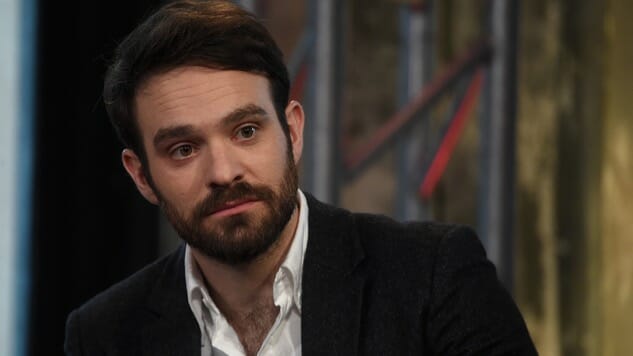Daredevil’s Charlie Cox on Season Two, Moral Complexity and Karen vs. Elektra

Photo Credit: Getty Images
By all accounts, Netflix’s first season of Daredevil was a huge success. Critics and fans alike loved its dark tone, dynamic personalities and street-level perspective amidst an MCU that spans continents, planets and galaxies. It’s somewhat unbelievable that season two has no trouble amping up the show’s quality even further. Paste caught up with Daredevil centerpiece Charlie Cox to talk about the nuances of his character’s friends, love life and being the “Devil from Hell’s Kitchen.”
Paste Magazine: In Daredevil’s first season, we saw the rise and fall of Wilson Fisk and Matt Murdoch’s journey in exploring his own morality as a would-be hero, while fighting a city of corruption. Are things looking up in Season Two?
Charlie Cox: Great question. The city is in a better place. I think criminal activity has plummeted. Wilson Fisk is behind bars. Things are looking up.
From an emotional point of view, I think two things are happening with Matt. One is he’s made some sort of peace with this argument around who he is and what he’s capable of. His Catholic guilt—he’s been able to put that to bed a little bit. He’s found a happy medium, if you like. He’s come to terms with who he is and he made a deal with himself: These are the boundaries. These are the rules ,and if I stick to that then I’m in good shape.
The result of that, I think, is that he’s begun to really enjoy being Daredevil. He’s having a great time. He’s loving it. He longs for that commute home from the office so that he can start gearing up. The other thing that’s happening is that—because his mind and his soul aren’t all consumed with the problems in Hell’s Kitchen, and Wilson Fisk, and everything that’s going on—he’s able to investigate these romantic feelings and this relationship that seems to be blossoming with Karen. That’s a new side to Matt that we haven’t really seen before, the vulnerability that we haven’t really been aware of. As you said, things are looking up.
Paste: Karen’s a woman who has proven her passion for fighting injustice in her own way. Do you think that, on a subconscious level, she senses and is attracted to the vigilante spirit within him?
Cox: If I understand your question correctly, I think the answer is yes. I don’t personally think that she suspects that he’s Daredevil for a second. I don’t think she’s there. The reason I don’t think that is because I don’t think Karen Page is someone who would think that, and not say something. Karen says what she thinks. She crosses lines countless times with Matt and other people. She’s not afraid of that kind of confrontation and she’s not afraid to put people on the spot and force them to answer questions.
I think you’re right in terms of the fact that she probably recognizes, as you said, a warrior spirit in him—the courage and a kind of instinct for survival that she probably also recognizes within herself. She thinks that she and Matt in some ways are cut from the same cloth.
Plus, there’s that kind of the magic that you can’t really put a name on, or you can’t really label. When the chemicals are right in place and those things. I think they’re falling in love with each other, and they have been probably since the day they met, in a gentle way that circumstances have allowed them to.
Paste: Of course, this season also introduces another woman whom Matt has shared a kindred spirit with, in the form of his ex-girlfriend, Elektra. One key flashback scene revealed that she once kidnapped Matt’s father’s murderer, and unsuccessfully tried to convince Matt to kill him, leading to the end of their relationship. Despite not buying into her extreme leanings, did that moment open Matt’s eyes to the idea of vigilante justice?
Cox: That’s a really great question. I think what Elektra does when she presents the guy who killed his father, is that she opens a trap door for him, which he initially tried to shut dead. She also disappears so that makes it, well for a period of time, it makes it easy.
-

-

-

-

-

-

-

-

-

-

-

-

-

-

-

-

-

-

-

-

-

-

-

-

-

-

-

-

-

-

-

-

-

-

-

-

-

-

-

-








































